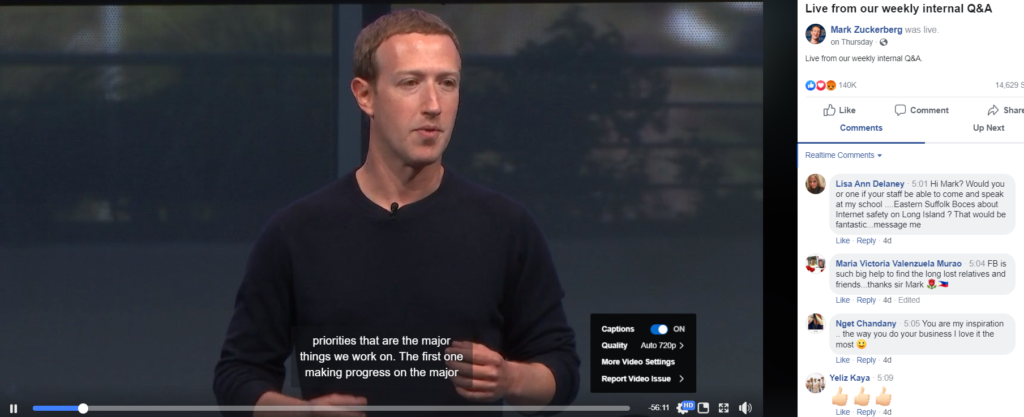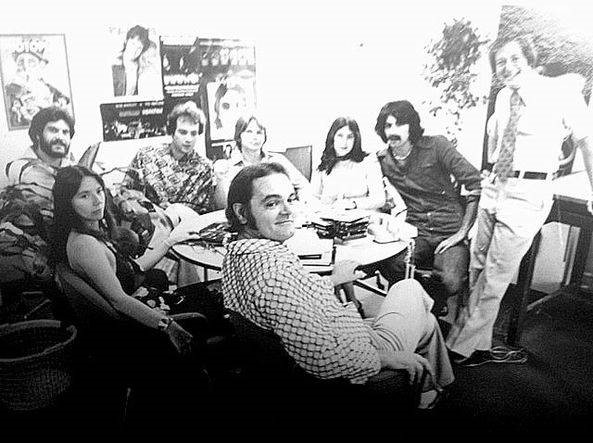
Sometimes you just get lucky. Back when we started our Techsurveys in 2004-05, our timing turned out to be propitious. It was around that same time when the iPhone, YouTube, and Facebook were all emerging platforms, just being introduced to the greater public. In the ensuing years, we’ve been able to track how core radio listeners use these technologies these past 15 years, providing the radio broadcasting industry with trending and context.
One of the interesting aspects about Facebook is (just about) all of us use it – as posters, advertisers, “likers,” commenters, or lurkers – but we sometime lose sight of just how truly massive an ecosystem it has become. To call it a platform is to minimize its incredible impact over this short period of time on our society and around the world.
Stats put out this week from LearnBonds might surprise you, when you consider just how ginormous Facebook has become:
- Facebook is closing in on 2.5 billion daily users
- Its daily active users (DAUs) rose nearly 2% from Q1 to Q2 this year
- Facebook’s DAUs could reach 32% of the world’s population – currently 7.73 billion people
This, in spite of some of the serious speed bumps Facebook has encountered this year, including security breaches, privacy concerns, political manipulation, and of course, internal leaks.
The White House isn’t the only place leaking like a sieve. It turns out that inside every big company, there are disgruntled employees ready, willing, and able to sneak out video, documents, and other artifacts that give the public a glimpse into their inner-workings. Let’s face it – Jerry Del Colliano has made a living off of “leakage” for decades, depending on his loyal readers to sing about what they see going on in their companies.
And Facebook is no exception. As they have been confronted with increased pressure because of the platform’s impact on politics, culture, sports, and life itself, Mark Zuckerberg has found himself under the microscope.
Forbes’ John Koetsier reports that last week, one of Zuck’s employees leaked video of an internal meeting, apparently loaded with potentially explosive information that has already gotten the attention of Senator Elizabeth Warren.
So, how do you combat leaks, while responding to growing demands to be more transparent? Zuckerberg may have the answer:
Livestream everything
Using his own Facebook Live tool (hey, why not?) Zuckerberg’s solution to the leaks is to live-stream his weekly internal Q&A session, previously limited to employees. Now, his more than 117 million followers can watch along, if that’s what makes them happy.

It actually turns out to be an interesting look inside a company that all of us use but few of us truly understand. Taking us behind the scenes at these Q&A sessions not only effectively ends Facebook’s leakage problem, but it also provides interesting insight into how Zuck thinks, how he views the company at this moment at time, and how well he thinks on his feet.
And what is he actually giving away here? Sure, everyone at Snapchat, Pinterest, and Twitter watched this Facebook town hall meeting, too. But, Zuckerberg simply let us be a fly on the wall – he didn’t share code or trade secrets.
Yet, this type of experiment is interesting, suggesting other applications for transparently live-streaming a company get-together. At a time when radio is struggling to demonstrate its humanity, its local connection, its curation, and its personality, these techie exercises might be a unique way to share these qualities with the audience.
Years ago when Entercom signed on KKDO in Sacramento – ALT 94.7 – programmer Jim Fox live-streamed a focus group I conducted. I remember thinking at the time how “dangerous” this was, until it occurred to me this concept was a way to bond the audience with a new radio station brand that had no live air talent.
And back at WRIF in the early 80s, I hosted an “Ask the PD” talk show a couple times a year where listeners could call in and “ask me anything” about the radio station, the DJs, the music, or whatever was on their minds. Were there “squishy” moments? Occasionally. But for the most part, there was nothing I couldn’t answer about why we did what we were doing. If Facebook Live existed back then, you can bet I would have donned my best leather jacket and live-streamed the show.
Consumers have questions about their favorite things – sports teams, radio stations, restaurants, motorcycles, you name it. So, why not provide unique behind-the-scenes coverage that helps strengthen their connection to the brand?
Imagine a live-streamed music meeting.
Or a Q&A with the executive team – PD, sales manager, engineer, digital, and the GM.
Or a jock meeting.
Or that meeting that begins a station’s music festival planning. Fans contributing their own suggestions in real time or “voting” on various bands could provide a unique view into the process.

This open-door tactic by Facebook is a sign they’re trying to display their own transparency, but perhaps the real message from this initiative is demonstrating they’re just a bunch of people tasked to run a massive tech company. That’s in contrast to most people’s views of Facebook – an impersonal, monolithic company that doesn’t care a whole lot about its customers.
But when you watch this live-stream, you see an engaged CEO who while robotic at times (his words), comes off as just another Millennial running a tech company, albeit a really big one. The “broadcast” personalizes Zuckerberg. You see him in a way you’ve never seen him before – his process, the way he thinks on his feet, and how he responds to his key staffers.
You also see the hundreds and hundreds of people in the audience, and you’re reminded that just like in your workplace, Facebook is a collection of dedicated people trying to do their jobs in a fast-moving, uncertain, disruptive environment.
Interestingly, we’re not seeing this from Zuckerberg’s smaller, more agile competitors, whether it’s other social media outlets on the one hand, or Google, Amazon, and Apple on the other. Ultimately, this move to neutralize leakers could turn into a forum that humanizes Zuckerberg, while helping his company avoid the many sand traps and hazards it’s facing.
Radio could use a little of that as well. Local broadcasters find competitors like Google, Facebook, and Spotify daunting. But none of them is using the tech tools to warm up their brands, make close connections with users, and personalize their companies, their audience outreach, and their advertising and marketing efforts.
Not only do radio personalities help make stations very real, but programmers and other station execs can also provide outreach that supports transparency as well as a community connection.
As technology becomes more about Artificial Intelligence, programmatic, and algorithmic – all tools that depersonalize a brand and a fan base – a little eye contact, the human touch, and a dose of transparency can stand out and make a difference.
Even for Mark Zuckerberg.
Note: The jock meeting you see pictured above is an “oldie” from WCOZ, Boston, sent in from Clark Smidt. The meeting was not live-streamed on Facebook Live.
Also thanks to Paul Ingles for the WFDD photo from roughly the same period.
- What To Do If Your Radio Station Goes Through A Midlife Crisis - April 25, 2025
- A 2020 Lesson?It Could All Be Gone In A Flash - April 24, 2025
- How AI Can Give Radio Personalities More…PERSONALITY - April 23, 2025




As always, thought provoking. I like how some alternative and AAA outlets have also given transparency to the music selections, for example “Lightning 100” in Nashville does open music meetings – where station staffers, local artists, listeners, etc. can come by and be a part of the music listening and feedback process. “The Summit” in Akron and “Colorado Sound” are also taking the music meeting to the listeners at various locales. Commercial or non-comm, hit driven or “music discovery” – we should all be considering ways to maintain that human connection and be fully present in the lifestyle of our audience.
I also hope Facebook’s transparency ideals will begin to extend to their digital advertising business. I’m sure everyone in radio is frustrated by how digital can be the “shiny thing” where our sponsors are putting more of their budgets, but many times it isn’t delivering on the promise, and there should be accountability for that. For example, Facebook’s prioritization of video changed how many media outlets produced and promoted themselves, and we now find out they’re being fined for inflating those numbers.
Honest dealing & transparency build trust – and local radio should be the first voice our communities can trust.
Agree, agree, Matt. Great comments. Thanks for weighing in.